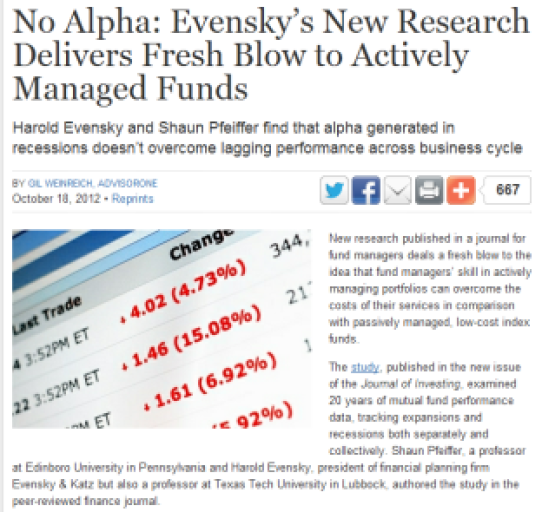Weekend Reading November 9, 2012
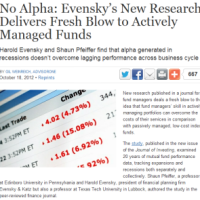 Another Blow To Active Mutual Funds
Another Blow To Active Mutual Funds

Another study on the alpha of active mutual funds has been conducted by Shaun Pfeiffer of Edinboro University and Harold Evensky of Texas Tech University reinforces the underperformance of active mutual funds. Their research reinforces former studies, which calculate an average underperformance of 9% compared to passive index funds over a 10 year period. While active managers do seem to perform better in bear markets, enough to cover their fees, across both bear and bull cycles, their performance lags index funds.
The original study can be found here. I also have posted on this topic before, with an accompanying video, which can be found here.
Continue to the article by clicking here.
How to Prepare for Black Friday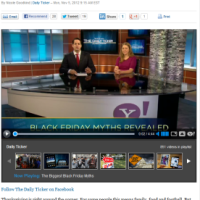

As we move into the sales extravaganza at the end of this month, many plan to take advantage of the ubiquitous Black Friday sales. Lindsay Sakraida of dealnews.com details some of the myths about Black Friday that abound. Some good nuggets of wisdom: not everything is at it’s lowest price on Black Friday, Best Buy and Target have Black Friday price matching policies in place, Black Friday deals often start before Black Friday, and you may not be able to return the items you buy on Black Friday.
Continue to the article by clicking here.
Infographic – How Your Tax Rates May Be Affected By A Second Obama Term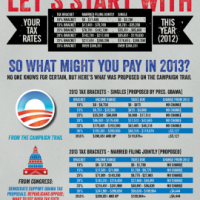

This illustrative infographic summarizes the current tax rates that Americans are paying as well as the tax rates proposed by President Obama, the Democrats, and the Republicans. The infographic also touches on the future of hot topics such as future legislation for Social Security, the AMT patches, health care, capital gains and dividend
taxes, estate taxes, and the corporate tax rate.
Continue to the article by clicking here.
Do Newer Doctors Cost You More Money?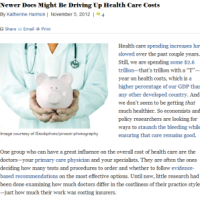

Newer doctors may drive up cost of healthcare, by utilizing more expensive medical techniques. Doctors with less than 10 years of experience cost 13% more than doctors with over 40 years of experience. The articles goes on to speculate that newer doctors are more costly because they are more familiar with the newest treatments available. These treatments are typically more expensive, and this more aggressive style of testing could be due to uncertainty on the young doctors’ part. They may wish to cover every possibility rather than only the most likely possibilities.
Continue to the article by clicking here.

